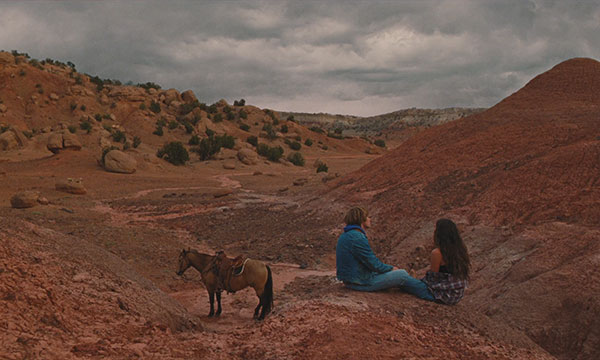National Anthem adopts a hazy and nostalgic atmosphere to chronicle one man’s journey of self-discovery and acceptance in a new world.
The world is constantly changing – even when we think we’re catching up, something new always pushes us forward in a way that many people simply can’t accept or understand. That’s always been the case, but the past few years have seen our societies catapulted into the future faster than we’ve ever known before; contemporary ideas about sexuality, identity, and humanity have been at the forefront of our modern age for a long time now, and despite attempts to integrate and normalize these progressive ideas, there are certain groups that continue to find themselves marginalized and suppressed simply because they’re inciting an unfamiliar change that seemingly endangers the comfortable existence that society has enjoyed until now.
But existence has never been comfortable – humanity is characterized by its necessity for change and evolution, and National Anthem highlights just how important it is for us to accept the constantly adapting facade of normality.
The film centers on a young man named Dylan (Charlie Plummer), whose isolated routine in New Mexico leaves him wholly unsatisfied with life. Forced to spend his time providing both emotionally and financially for his younger brother and absent mother, Dylan accepts an offer to help construct a homestead in the local area. The people that he meets during his time at the ranch open his eyes to a completely new way of life – a form of existence that doesn’t confine him to the restraints of his conservative family, but rather allows him to search within himself and finally express his emotions and spirituality in a way that society had previously conditioned out of him. It’s an extremely moving story about the power of self-acceptance and the importance of truly living for yourself, rejecting the idea that our lifestyles have to confine to the way society has previously functioned.
National Anthem certainly isn’t the first story to deal with themes of sexual repression and social exclusion, but it manages to convey its message in an extremely passionate and undeniable way. The world that Dylan enters is framed not only as something secretive and forbidden, but also in a way that seems almost rebellious. Despite focusing closely on Dylan’s central journey, National Anthem also explores the general effect of these communities on the American south – they’re pockets of rebellion that refuse to be extinguished. While the world continues to fight for stability and consistency, these communities will never fail to make themselves heard and force society to come to terms with the knowledge that things need to change.

Dylan is just one man, but his story represents something that thousands of people have to deal with on a daily basis. The discovery of unadulterated living, the freedom to act on your own sexual and spiritual compulsions, forming close bonds that aren’t confined by preexisting ideals of religion and monogamy. The film may seem radical to some, but that’s only because it’s so different from normality – and when normality paints these individuals as ‘strange’ or ‘non-functional’, maybe that’s exactly what the world needs.
From a cinematic perspective, National Anthem works really well. The cinematography is crisp and alluring, with the warm colors and soothing music creating a comfortable atmosphere that gives this important story a safe space to flourish. It’s the kind of film that revels in its quiet, intimate moments, allowing this story to build from the silences between words instead of any kind of sharp dialogue or unnecessary interactions. The story is internal and personal – and director Luke Gilford (alongside cinematographer Katelin Arizmendi and editors Josh Schaeffer & Amber Bansak) understands this brilliantly.
There’s very little to complain about on the film’s technical side – the only area where National Anthem seems to falter is in the plot itself. There isn’t always enough narrative or plot progression to justify such a character-driven story, particularly when it focuses so intensely on one person. There’s a clear lack of characterization and development, which, if present, would have really propelled this story into something great. Instead, you’re left appreciating the ideas and overwhelmed by the importance of the message, but somewhat disappointed by the lack of engagement that it offers as a piece of entertainment.
National Anthem is a crucially important film that might not have all the strengths of a great drama, but the ideas and themes are consistently explored in a way that genuinely feels new. And when dealing with such progressive themes as sexual identity, feeling new and refreshing is one of the greatest compliments this story could receive. It’s more preoccupied with inciting change and questioning our social development than it is with entertaining the audience, and while that causes a few moments of dull storytelling, it keeps the central ideas fresh in the viewer’s mind for a long time.
National Anthem premiered at SXSW 2023 on March 10-15, 2023 and was released in select US theaters on July 12, 2024. The film is now available to watch on digital and on demand in the US & Canada and will be released on digital platforms in the UK on December 6.

